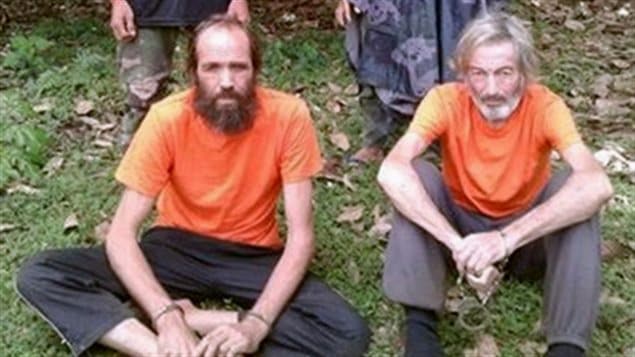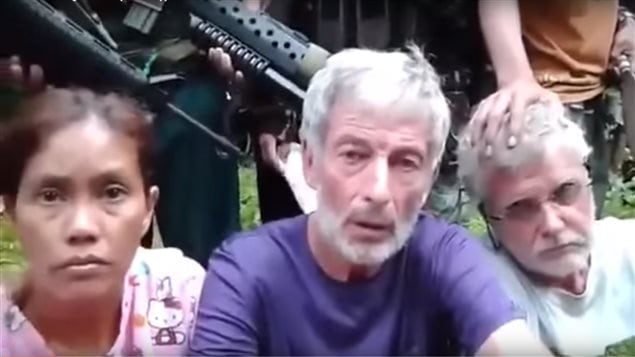The federal government is facing renewed calls to review its strategy of dealing with hostage situations involving Canadians abducted abroad following the deaths of two Canadians executed by their captors in the Philippines earlier this year.
John Ridsdel and Robert Hall were executed within seven weeks of each other earlier this year by a militant Islamist group in the Philippines after Ottawa refused to pay any ransom.
Security experts and former kidnap victims and their families are urging Ottawa to review how it works with the families of abducted Canadians to resolve hostage situations or provide assistance to the private efforts of the families to secure the release of their loved ones.
Among the recommendations is establishing a U.S.-style “fusion cell” that would improve co-ordination between government departments in the hopes of resolving hostage situations.
Lee Humphrey, a former Canadian soldier who now works as an international security consultant, told CBC News the fusion cell should be led by the Royal Canadian Mounted Police and would bring together experts from the departments of National Defence, Global Affairs, Justice and Canadian Security Intelligence Service to form a single, specialized hostage recovery team that would speak with one voice.
“Every Western country is moving towards a fusion cell approach,” Humphrey told CBC News, which has published a two-part series on Canada’s handling of overseas kidnappings.
Humphrey believes Canada hasn’t done enough to adapt to an increase in international kidnappings.
“Canada does not seem to get it, and perhaps it’s because there’s been no political blowback, but there is no emphasis on fixing [our approach to kidnappings], despite the numerous cases during the last few years of very public hostage takings of Canadians internationally.”
Humphrey told CBC News Canadian families have complained for years that the government lacks a cohesive strategy to support and communicate with relatives of kidnapped Canadians.

Robert Hall’s sister, Bonice Thomas, told CBC News the government must learn from their mistakes in this case, “and find the information and expertise they need to create a team that is dedicated to that and can support not only the family, but perhaps a better outcome for a hostage.”
The Toronto Star newspaper reported that problems with Canada’s approach were initially flagged eight years ago.
At the time, the government of then Conservative Prime Minister Stephen Harper was confronted with five overseas abductions in five months: freelance journalist Amanda Lindhout in Somalia; CBC reporter Mellissa Fung in Afghanistan; aspiring filmmaker Beverly Giesbrecht in Pakistan; and Canadian diplomats Robert Fowler and Louis Guay in Niger, where they were working for the United Nations.
Among the gaps in Canada’s hostage response system are a lack of support and expertise in handling the very specific and evolving challenge of overseas kidnapping, the Star said citing multiple sources.
Humphrey says the need for a better strategy is especially urgent given the possibility of Canadian peacekeepers being imminently dispatched to North Africa.
Based on reporting by Lisa Laventure, Rosemary Barton, CBC News







For reasons beyond our control, and for an undetermined period of time, our comment section is now closed. However, our social networks remain open to your contributions.